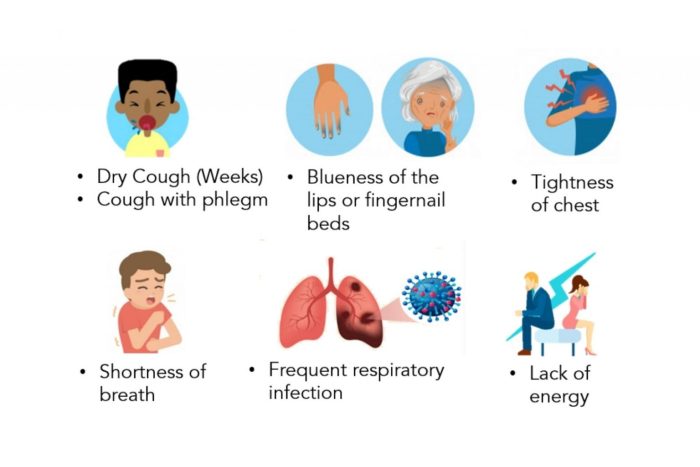
Delving into the realm of managing childhood asthma symptoms and treatments, this guide offers a detailed exploration of this critical topic. From common symptoms to various treatment options, get ready to uncover essential insights that can make a difference in a child’s health.
Managing Childhood Asthma Symptoms and Treatments

Childhood asthma can be a challenging condition to manage, as it involves the inflammation and narrowing of the airways, leading to symptoms such as wheezing, coughing, shortness of breath, and chest tightness. These symptoms can vary in severity from mild to severe and can be triggered by various factors such as allergens, respiratory infections, exercise, or exposure to irritants.
Overview of Treatment Options
- Medications: Inhalers are commonly prescribed to help open up the airways and reduce inflammation. These can include quick-relief inhalers for immediate relief during asthma attacks and long-term control medications to manage symptoms on a daily basis.
- Allergy Management: Identifying and avoiding triggers such as dust mites, pet dander, pollen, or mold can help reduce asthma symptoms. Allergy shots may also be recommended in some cases.
- Monitoring and Action Plans: Regular monitoring of asthma symptoms and peak flow measurements can help in early detection of worsening symptoms. An asthma action plan Artikels steps to take based on symptom severity.
- Lifestyle Changes: Encouraging a healthy lifestyle with regular exercise, a balanced diet, and avoiding exposure to smoke can also contribute to better asthma management.
Importance of Early Detection and Monitoring
Regular monitoring and early detection of asthma symptoms in children are crucial to prevent asthma attacks and complications. By identifying triggers and implementing appropriate treatment early on, it is possible to better control asthma symptoms and improve the quality of life for children with asthma.
Child Health

Childhood asthma can have a significant impact on a child’s overall health and well-being. The chronic inflammation of the airways and the resulting breathing difficulties can lead to decreased physical activity, disrupted sleep, and increased stress levels in children. This can affect their ability to fully participate in school, sports, and other activities, ultimately impacting their quality of life.Moreover, untreated childhood asthma can have long-term effects on a child’s health.
Persistent inflammation and damage to the airways can result in reduced lung function over time, increasing the risk of respiratory infections and other respiratory conditions in adulthood. Additionally, poorly controlled asthma can lead to frequent emergency room visits, hospitalizations, and even life-threatening asthma attacks.To promote better child health outcomes in relation to asthma management, preventive measures play a crucial role.
This includes identifying and avoiding asthma triggers, ensuring proper medication adherence as prescribed by healthcare providers, maintaining a healthy lifestyle with regular exercise and a balanced diet, and having a written asthma action plan in place for quick response to asthma symptoms or exacerbations.
By taking proactive steps to manage childhood asthma effectively, parents and healthcare providers can help children lead healthier and more fulfilling lives.
Closing Notes
In conclusion, understanding the nuances of childhood asthma symptoms and treatments is vital for ensuring the well-being of young individuals. By staying informed and proactive, caregivers and healthcare providers can work together to provide the best possible care for children with asthma.
Popular Questions
What are some lesser-known symptoms of childhood asthma?
Lesser-known symptoms may include frequent night-time coughing, trouble sleeping due to coughing, and fatigue during physical activities.
Is it possible for children to outgrow asthma?
While some children may outgrow asthma, it is crucial to monitor symptoms and continue appropriate treatment under medical supervision.
How can environmental factors impact childhood asthma?
Environmental factors such as air pollution, tobacco smoke, and allergens can trigger asthma symptoms and exacerbate the condition in children.







